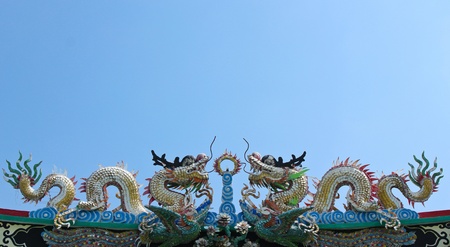1. What Is Feng Shui? Origins and Core Principles
Feng Shui (pronounced “fung shway”) is an ancient Chinese practice that focuses on arranging spaces to create balance, harmony, and a positive flow of energy—what the Chinese call “qi” (or “chi”). While it might sound mystical, Feng Shui is really about how our environment can influence our mood, productivity, and even luck. Over time, this tradition has traveled far from its roots in China and has been embraced by people around the world—including many in the United States who want to make their homes and workplaces feel more comfortable and inviting.
Ancient Roots of Feng Shui
The origins of Feng Shui date back thousands of years to ancient China. It began as a way for people to select the best sites for homes, farms, and burial grounds, based on the natural landscape. Early practitioners believed that the land’s shape, water sources, mountains, and directions could affect people’s well-being.
Key Historical Facts About Feng Shui
| Time Period | Development |
|---|---|
| Over 3,000 years ago | Early observations of natures influence on life in China |
| Han Dynasty (206 BCE–220 CE) | Formal principles and texts were established |
| Modern Times | Adopted internationally with adjustments for local cultures |
Core Principles of Feng Shui
The basic idea behind Feng Shui is to create environments that support health, happiness, and success. Here are some key principles:
The Five Elements
- Wood: Growth and vitality
- Fire: Passion and energy
- Earth: Stability and nourishment
- Metal: Clarity and precision
- Water: Flow and abundance
The goal is to balance these elements within a space using colors, shapes, materials, or even furniture placement.
The Importance of Qi (Energy Flow)
Feng Shui believes that qi should move freely through your home or workspace. Blocked or stagnant energy can lead to discomfort or bad luck. That’s why you’ll often hear tips like “keep hallways clear” or “don’t block windows.” These ideas are meant to help energy circulate smoothly.
The Bagua Map: Guiding Your Space
A bagua map is a tool used in Feng Shui to divide your space into nine areas, each linked to a different part of life—such as wealth, relationships, or career. By aligning furniture or décor according to the bagua, you can focus positive energy where you want it most.
| Bagua Area | Main Focus |
|---|---|
| Wealth & Prosperity | Abundance and financial success |
| Fame & Reputation | Your personal brand or recognition |
| Love & Relationships | Partnerships and romance |
| Family & Health | Well-being and family ties |
| Center (Tai Chi) | Total balance and overall wellness |
| Children & Creativity | Innovation and future plans |
| Knowledge & Wisdom | Lifelong learning and growth |
| Career & Life Path | Your job or sense of purpose |
| Helpful People & Travel | Support networks and journeys |
The Appeal of Feng Shui in America Today
You don’t need to be Chinese—or even believe in energy—to use some Feng Shui ideas. Many Americans have adopted these principles simply because they help make rooms feel better organized or more peaceful. Whether it’s rearranging your living room for better flow or adding plants for fresh air, there’s something in Feng Shui for everyone who wants a happier home or office.
2. Feng Shui in the American Context
Feng Shui Finds a New Home in the United States
While Feng Shui has deep roots in Chinese culture, its ideas have traveled across oceans and found a place in American life. Over the past few decades, Feng Shui has become a popular concept for people looking to improve their homes, workspaces, and even personal well-being. In the U.S., it’s not unusual to hear real estate agents mention “good energy flow” or see interior designers reference Feng Shui principles when arranging furniture.
The Rise of Feng Shui in Modern Home Design
Many Americans are drawn to Feng Shui because it promises harmony and balance—ideas that fit well with popular trends like minimalism and wellness living. Homeowners often use basic Feng Shui tips such as placing beds away from doors, keeping entryways clear, or adding plants for better energy. Some also consult professional Feng Shui experts before renovating or buying property, hoping to create spaces that feel calm and inviting.
Common Feng Shui Practices in American Homes
| Feng Shui Principle | How Its Used in the U.S. |
|---|---|
| Decluttering | Removing excess items to create an open, peaceful space |
| Natural Light | Maximizing sunlight for positive energy and mood |
| Furniture Placement | Arranging sofas and beds to face doors but not directly aligned with them |
| Plants & Water Features | Adding greenery or small fountains to invite growth and prosperity |
| Mirrors & Artwork | Using reflective surfaces and inspiring art to enhance certain areas of life (like wealth or relationships) |
Feng Shui at Work: Office Spaces and Beyond
The influence of Feng Shui isn’t limited to homes. Many American companies and office managers use these ideas to boost productivity and morale. This might mean placing desks so employees don’t have their backs to doors or creating break rooms with soothing colors. Even tech startups sometimes bring in Feng Shui consultants when moving into new spaces, hoping that good “chi” will lead to better teamwork and creativity.
Western Interpretations: Blending Cultures for a Unique Approach
In America, Feng Shui has often been simplified or mixed with other design philosophies. While traditional Chinese Feng Shui can be complex—with calculations based on birth dates, compass directions, and more—the U.S. version tends to focus on easy-to-follow tips that anyone can try. This blend makes it accessible but sometimes moves away from its original meaning. Still, many Americans find value in using these principles as a guide for making their spaces more comfortable and supportive.

3. The Science Versus Superstition Debate
Feng Shui is a centuries-old practice that many people believe can bring luck, harmony, and prosperity. But in today’s modern world, especially in the United States, it’s important to ask: how much of Feng Shui is backed by science, and how much is rooted in tradition or superstition? Let’s take a closer look at what scientific studies and experts say about Feng Shui.
What Science Says About Feng Shui
Most scientists agree that there isn’t enough research to prove that Feng Shui directly affects luck or fortune in measurable ways. While many people feel positive changes after making adjustments based on Feng Shui principles, these results are often subjective and hard to quantify. Some psychologists suggest that any benefits may come from a person’s belief in the process—what experts call the “placebo effect.” In other words, if you believe your environment is improved, you might simply feel better because of your expectations.
Scientific Studies on Feng Shui
| Claim | Supported by Research? | Notes |
|---|---|---|
| Arranging furniture for better energy flow increases happiness | Partially | Some studies show tidy spaces can improve mood, but not specifically due to “energy.” |
| Certain colors or objects attract wealth or love | No | No scientific evidence supports this claim; effects are likely psychological. |
| Decluttering improves health and focus | Yes | Research shows clean, organized spaces help reduce stress and increase productivity. |
| The direction your bed faces affects sleep quality | No direct evidence | Sleep quality depends more on comfort and noise/light levels. |
| Plants inside the home bring good luck | No direct evidence for “luck” | However, plants do improve air quality and well-being. |
The Role of Tradition and Belief
A lot of Feng Shui advice comes from ancient beliefs about nature, balance, and energy. These ideas have been passed down through generations and are deeply woven into Chinese culture. In American homes, some people follow Feng Shui as a way to feel connected to these traditions or to create a sense of comfort and order. Even if not every claim is proven by science, these practices can still make a difference simply because they give people a sense of control over their space.
Expert Opinions in the U.S.
Many American interior designers appreciate elements of Feng Shui, such as decluttering or maximizing natural light. They often recommend these tips—not because they guarantee good luck, but because they make homes feel more welcoming and comfortable. Meanwhile, scientists encourage people to enjoy Feng Shui as long as they understand which claims are cultural beliefs rather than proven facts.
4. Common Feng Shui Myths and Misconceptions
Understanding the Real Impact of Feng Shui in America
Feng Shui has become popular in the United States, but there are many misunderstandings about what it really is and how it works. Many people hope that Feng Shui will bring instant wealth, luck, or happiness just by placing a lucky charm in their home. In this section, we’ll explore some of the most common myths and clarify what Feng Shui can and cannot do for your luck, wealth, and wellbeing.
Myth vs. Reality: What Can Feng Shui Really Do?
| Myth | Reality |
|---|---|
| Feng Shui brings instant luck or riches. | Feng Shui helps create a positive environment, but it doesn’t guarantee sudden wealth or luck. It’s about supporting your goals, not magic fixes. |
| Feng Shui is a religion or superstition. | Feng Shui is not a religion. It’s an ancient Chinese practice that focuses on arranging spaces to promote comfort and balance. |
| You must buy expensive “lucky” objects for results. | You don’t need costly items. Simple changes like cleaning clutter or letting in more sunlight can make a big difference. |
| Feng Shui only works for certain people or cultures. | Anyone can use Feng Shui principles. It’s about creating harmony with your surroundings, no matter where you live. |
| If something goes wrong, bad Feng Shui is always to blame. | Life is complex. While Feng Shui may help improve comfort and focus, it cannot control every event in your life. |
How These Myths Spread in the U.S.
Many of these misconceptions come from movies, social media trends, or marketing promises that sound too good to be true. In American culture, people often look for quick fixes or secret tricks to get ahead, which makes some believe that Feng Shui offers guaranteed shortcuts to success. In reality, Feng Shui should be seen as one tool among many for improving your space and mindset—not a magical solution.
What Feng Shui Can and Cannot Do
- Can: Help you feel more comfortable at home or work by improving flow, organization, and lighting.
- Can: Support your personal goals by creating an environment that feels calm and inspiring.
- Cannot: Promise instant money, love, or fame with a single change or object.
- Cannot: Replace hard work, planning, or healthy lifestyle choices.
If you want to try Feng Shui in your home or office, remember that the goal is to create a space that supports your wellbeing—not to chase after myths of easy luck or fortune. Focus on what feels right for you and fits your daily life in America’s unique cultural setting.
5. Tips for Applying Feng Shui without the Hype
If youre interested in Feng Shui but want to avoid falling for myths or exaggerated claims, here are some down-to-earth, practical ways to bring authentic Feng Shui principles into your American home or workspace. You dont need to buy expensive trinkets or make big renovations. Instead, focus on simple changes that support comfort, flow, and positive energy.
Focus on Function and Flow
Start by looking at how you use your space. Is it easy to move around? Are there obstacles in main pathways? In Feng Shui, this is called “chi flow,” but think of it as creating a space thats comfortable and free of clutter. A tidy, well-organized room can help you feel more relaxed and productive.
Simple Steps for Better Chi Flow
| Area | What to Do |
|---|---|
| Entryway | Keep it clean and welcoming; remove shoes and coats from the path |
| Living Room | Arrange furniture so people can talk easily; avoid blocking windows with large objects |
| Bedroom | Place bed where you can see the door but aren’t directly in line with it; keep under-bed area clear |
| Work Desk | Face the entrance if possible; keep desktop organized; add a plant for freshness |
Use Natural Elements Thoughtfully
You don’t have to fill your home with Asian decorations. Instead, try bringing in elements from nature—like plants, sunlight, or even a small water feature. These touches are not only good for Feng Shui but also fit right into American design preferences.
Culturally Relevant Feng Shui Decor Ideas
- Add a leafy plant (like a pothos or snake plant) to brighten up a corner.
- Let natural light in by keeping windows clean and using light curtains.
- Choose artwork or photos that inspire you personally instead of just traditional symbols.
- If you love pets, their playful energy can also enhance the space!
Avoid Superstition and Focus on Comfort
You don’t need to worry about “bad luck” numbers or placing mirrors in exact spots unless it genuinely makes you feel better. The real benefit comes from making your environment supportive and comfortable for your lifestyle.
Quick Tips for Everyday Feng Shui:
- Tidy up regularly—clutter is often linked to stress.
- Add personal touches that make you smile.
- Pay attention to air quality by opening windows when weather allows.
- Check lighting: soft, warm lights are more relaxing than harsh overheads.
The truth is that Feng Shui works best when you use its ideas as inspiration for creating a home or office where you feel good—not because you expect instant luck or wealth, but because thoughtful spaces support your wellbeing every day.


